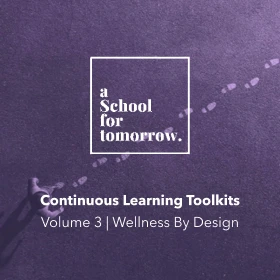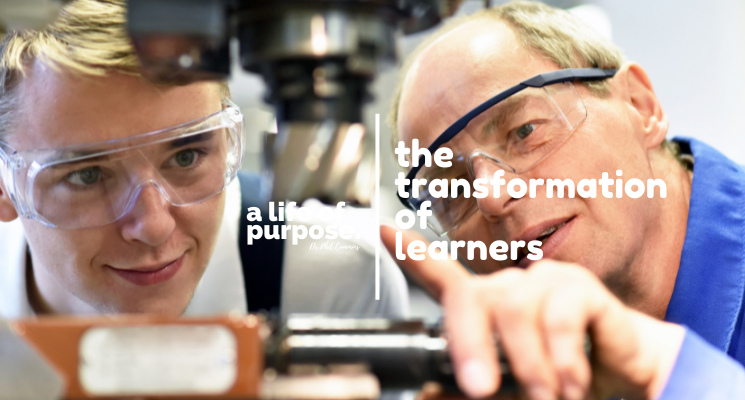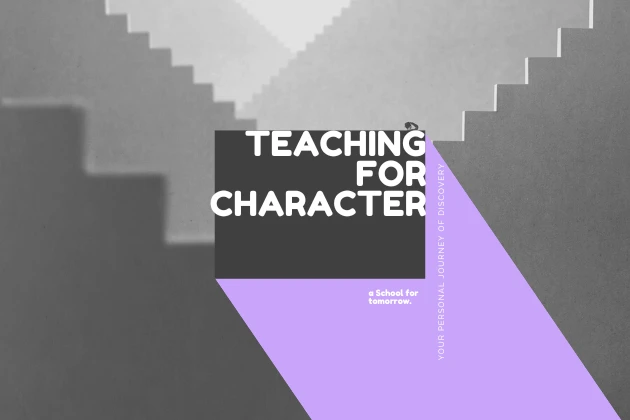
Dr Phil Cummins
Oct 16, 2022 | 2 minute read
Live: The Transformation Of Learning
Dr Phil Cummins explores the transformation of learning. Read more about the context and culture of learning in our times.
Promotion
a School for tomorrow's
Community Membership
Come together in our global community of innovative, like-minded people and help create the future of education.
Join CommunityClearly, the purpose of schooling is not simply to prepare a checklist for people of things to know and things to do that prepare them for a test. We want instead equip, empower and enable students to live a life that’s worthwhile and well-lived, a life spent wrestling with what's inside them and with required of them by others, a life spent on a journey from self-awareness to relationship to service and to vocation.
We need to help our young people transform on this pathway to excellence by strengthening their capacity to identify their voice, rehearse their agency, and to locate their advocacy. They need to develop the best possible set of solutions along the way as they’re building their future. They need to learn and unlearn continuously so that they can be decent and responsible citizens who can form and contribute to teams.
This, to me, speaks of what the context and culture of learning in our times needs to be. We are seeing a growing consensus around a shared conviction that character, competency, and wellness is the whole work of a school. It’s our role to help our students develop a sense of belonging, to help them to fulfill their potential and to help them make good and wise choices about what's right in the world and to follow the moral code that they developed along the way. It’s also our role to take all of this growth and development on their pathway to adulthood and put it to good use as they wrestle with what they think might be their mark and measure, and how they might turn their purpose into their practice with a deep regard for their people and place and planet.
So let's boil it down to a few simple things here and potentially allay some fears:
- Are schools important? Yes – schools are necessary social hubs for connection, learning, and achievement.
- Are teachers important? Yes– teachers are the essential adults in the room who are modeling, scaffolding and coaching children who are articulating, reflecting and exploring. They're the experts in a learning process who equip, empower and enable students to demonstrate their voice, agency and advocacy along the way.
- Is face to face learning important? Yes – it’s very important for us to be in a space with people where we can exercise all of our senses with each other to develop our essential knowledge, skills, dispositions and learning habits.
So, what I am suggesting is not novel. From early times, our thinking about teaching has always embraced this notion of the interconnected relationship between character, competency and wellness within a whole education for a whole person. It is appropriate to recognise that this character work that we see being done in future-fit schools exists as the lattermost stage of a continuum of the transformation of schooling that's been occurring since schools began.
Of course, transformation does not imply sudden and complete change of everything. Yet, as our world changes around us in this new era, we need to make wise choices about how much of the learning process needs to change to help us to form and sustain the essential relationships that fuel the personal transformation of students.
Today’s learning for tomorrow’s world is not just a simple conversation about online versus offline modes, and it's not just about high-tech vertical buildings versus more traditional school buildings. It's not about the ephemera or the environment per se. It's actually about how both the nature of the learning and what is intended at the end of the learning need to match each other. It’s about the whole process being transformational as students demonstrate that they have learned and mastered the graduate outcomes of our schooling processes and emerge as future-fit and future-ready.
If bringing about today’s learning for tomorrow’s world to ensure our graduates are future-fit and future ready means we need to reengineer the systems and structures of what we do in schools to adapt the mechanics of how learning needs to work, well, so be it.
Bring it on!
Let’s go!
Related Content

Products & Services
Discover our Continuous Learning Toolkit Volume 3: Wellness By DesignDetails on our publications page
Like what you’ve read?
Let’s keep the conversation going.

